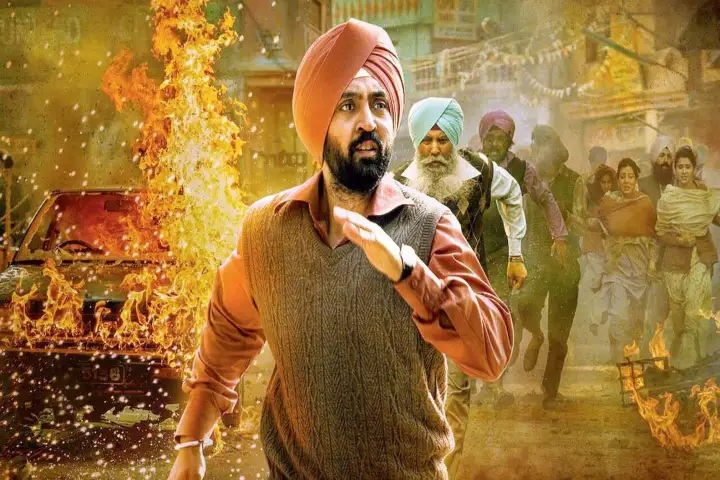

The film Jogi on 1984 Sikh riots will help radicals in the community fuel anti-India feelings
Movie-makers have tried to exploit for commercial gains the pain and suffering of the anti-Sikh riots that took place in the national capital in 1984 even at the cost of fuelling the anti-India agenda of radical elements in the community.
The Daljit Dosanjh starrer Jogi, released on Netflix on September 16, is an attempt in the same direction. Although, it also highlights the love and friendship between different communities, the focus on the role of powerful Congress politicians in the riots against the Sikhs is bound to have an adverse fallout.
In 2014 Dosanjh had produced “Punjab 1984” which too focused on the excesses committed against the Sikhs during the riots after then Prime Minister Indira Gandhi’s assassination. The movie won a national award. Some other movies revolving around the incidents of 1984 are Maachis (1996), Amu (2005), Chauthi Koot (2015), 31st October (2016), and the Grahan web series (2021).
No doubt Jogi is getting rave reviews as a good work of art, but at the same time, it is being considered as a cogent tool for the radicals abroad to strengthen their cases in courts of Western countries to procure political asylum.
It is common knowledge that asylum seekers project India in a bad light where human rights are violated with impunity. The periodic reports of organisations like Amnesty International – exaggerated, however they may be – get supported by such movies.
The question to ponder is whether such movies which try to dig deep into our wounds afresh do any good to the society?
The Jogi director Ali Abbas Zafar successfully brings out elements of tragedy, friendship, courage, humanity, and hope in the movie. The story dwells on the plight of a Sikh family in particular and the community in general following the news of Prime Minister Indira Gandhi’s assassination which was broadcast on All India Radio on 31st October 1984.
As the Sikhs in Delhi are shown being brutally killed, Jogi with the help of his childhood friends, police officer Ravinder Chautala (Md. Zeeshan Ayyub) and a truck-body builder, Kaleem Ansari (Paresh Pahuja), tries to guide the Sikh families of Trilokpuri to safety. Tejpal Arora (Kumud Mishra), a municipal commissioner shown as the main instigator of violence accompanied by inspector Laali Katyal (Hiten Tejwani), scuttles the efforts of Jogi and his friends. He goes on a shooting spree.
An element of youthful love is also introduced in the movie. Kammo (Amyra Dastur), a Hindu classmate of Jogi falls in love with him. The two develop a warm relationship cutting across lines of Hindu and Sikh religions. Both die before they could marry.
Finally, Jogi is shown shot dead by Tejpal, but at the same time, several Sikh families are saved as the Indian Army takes control of Delhi. The three-day delay in calling in the Army, to date, is being mentioned and discussed by historians and academicians which will again be something that the Sikh radicals could exploit as part of their propaganda.
Prime Minister Narendra Modi interacted with members of the Indian diaspora here on Wednesday as…
The city of Hamburg in Germany is set to host the 11th edition of India…
The International Atomic Energy Agency (IAEA) has confirmed that two Iranian centrifuge production facilities, TESA…
The human rights department of the Baloch National Movement (BNM), Paank, has strongly condemned the…
In a major boost to India's coastal defence capabilities, the Indian Navy on Wednesday commissioned…
Volker Turk, the UN High Commissioner for Human Rights, on June 17 expressed concern over…